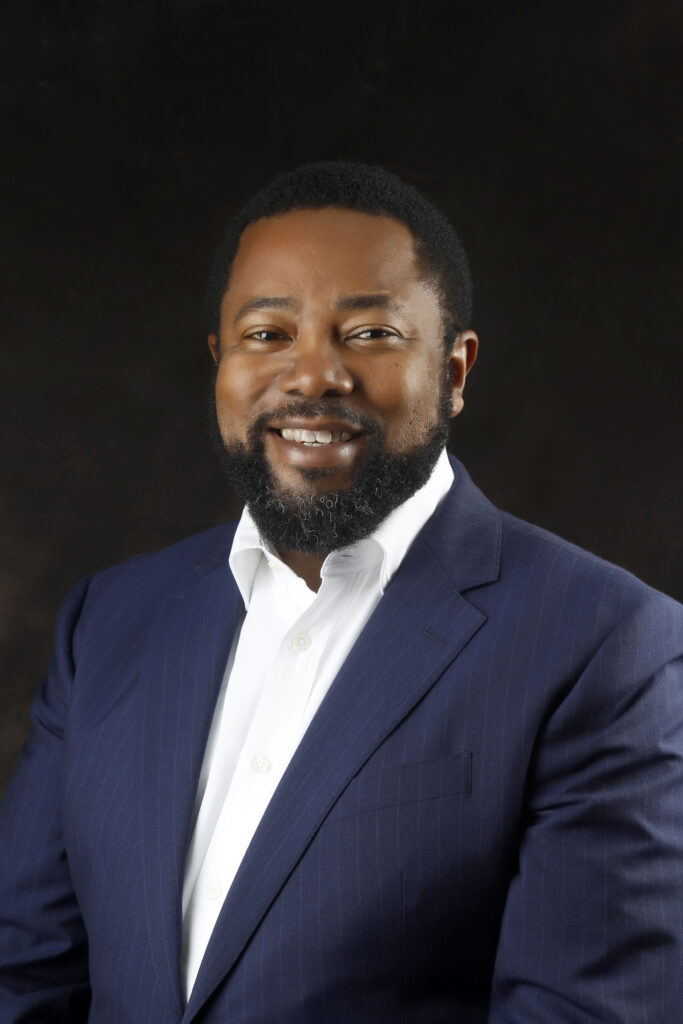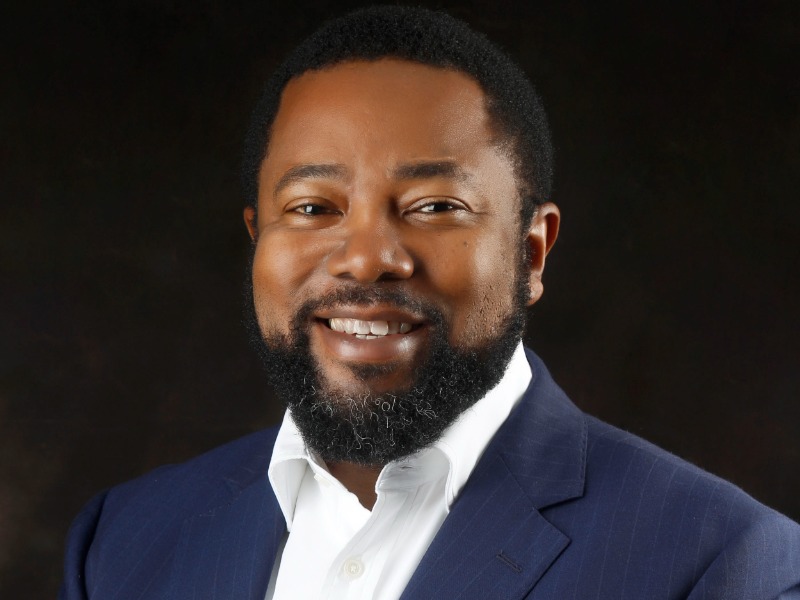As the new digital age produces new players who are keen to co-create and innovate, Mastercard has opened its doors to fintech companies that wish to build, launch and grow. Mastercards priority has been to provide a single point of entry to technology, products and partnerships as well as provide flexibility, while taking both an organic and inorganic approach to growth. Combined with aggressive expansion of homegrown services, it’s clear that Mastercard’s platform presents a rich suite of capabilities for partners to innovate. It’s now easier than ever to build with Mastercard. We caught up with Bola Asiru to discuss and gain further insight into everything from his views on what fintech can do for the Nigerian financial services industry to the role Mastercard is playing to help fintech companies to achieve financial inclusion.
- You have been a strong advocate of FinTech’s potential to transform the Nigerian Financial Services Industry, where do you believe we currently are within the transformation process?
Over the last few years, Fintechs have accelerated positive disruption in the financial services sector, contributing to the rapid digital transformation of products and services that are making lives more convenient, simpler and rewarding.
Mastercard has long recognized the significant value Fintechs add to both consumers and businesses. We have been actively engaging with them to strengthen the digital payments landscape and bring together an ecosystem of key players at different touchpoints. But other key stakeholders such as telcos, e-tailers, and banks also play a critical role. And when we bring them all together, we can empower millions of people across Nigeria by delivering innovative digital solutions that have a far-reaching impact, and unlock the true potential of inclusive growth.
Government is also doing a good job responding to the rapid changes in the industry. However, there are certain areas that industry players are looking to the government to provide practical guidance on how to proceed – One example is the acceleration of payment innovation via contactless devices. Contactless payment options have become increasingly important in the COVID-19 era.. We have seen several Central Banks globally and also in Africa increase the CVM limits to encourage more contactless payments Unfortunately, many Issuers in Nigeria still have a zero CVM limit for contactless payment devices and cards. Some more regulatory guidance towards increased CVM limits would grow contactless transactions in a safe and convenient way; thereby giving consumers more choice and alternatives with regards to payments
The Central Bank of Nigeria has also taken a lead in Africa by issuing the e-Naira (a Central Bank Digital Currency). It is a step in the right direction towards driving a digital economy in which Fintechs can thrive.
- Who takes the lead in innovation? The banking community or will start-ups be at the forefront?
The relationship between the banking community and fintechs does not have to be a zero-sum game. According to the World Fintech Report 2020, for banks to remain appealing and competitive in the shifting landscape, they need to transform into agile and customer-centric organisations embracing technology. The simplest way to do this is for banks to partner with fintech players, integrate fintechs into their infrastructure and simultaneously drive innovation.
An offering such as Mastercard’s Fintech Express is a bridge connecting fintechs with traditional players such as banks. The programme supports digital payment innovators by making it simple to collaborate with Mastercard and its partners to launch new fintech products. It is designed for fintechs looking to add payment solutions to their suite of products, tech-savvy startups looking at serving a new segment as well as established players with ambitions to innovate through partnerships.
- What role is Mastercard playing to support fintechs in driving financial inclusion?
At Mastercard, we believe that fintechs are contributing to the rapid digital transformation that makes lives more convenient, simpler, and rewarding. Many fintech services and products create enhanced competitiveness and have a real impact on consumers and small businesses, and this fintech innovation is bringing us closer to financial inclusion.
Mastercard is playing a key role in making fintech partnerships a reality as a single technology provider. Mastercard StartPath our global startup accelerator program, provides fintech startups with access to our global network of innovators and partners that enable start-ups to scale, building the future of commerce. Many of the startups that went through the Mastercard StartPath program contribute to financial inclusion in Africa today
Hello Tractor, for instance, is revolutionising mechanisation services in Nigeria and Kenya by bringing together tractor owners and smallholder farmers through Internet of Things technology and allowing farmers to access affordable tractor services, plant on time and increase yields. Ukheshe, a digital banking platform provider in South Africa, helps unbanked informal traders, street vendors and casual labourers (without bank accounts or smartphones) to accept digital payments and to get paid in real-time via an uKheshe card, which features a QR code linked to their cellphone number.
There’s MAX, a Nigeria-based motorcycle-share company providing digital payment capabilities and instalments for typically unbanked riders, who can purchase motorcycles and, as a result, build their credit profiles. NetPlus has worked with Mastercard to introduce a secure e-commerce solution that removes the need for consumers to carry cash for online purchases.
Kasha on the other hand, is an ecommerce platform for women’s health, personal care and beauty in Kenya and Rwanda. Built for urban and rural areas with or without internet access, Kasha empowers women to confidentially and affordably purchase the products they need, while enabling manufacturers to reach those women. Then there’s Lidya, a Nigerian business loan platform that lets SMEs register online for loans and get that credit within 24 hours. This process helps SMEs build a credit history for the first time.
- One of the challenges for fintechs remains funding, though increasing in availability, it is still in shorter supply than is necessary, how do we channel more resources towards fintechs?
When you say resources, it is natural to think of just capital, but Fintechs need various types of resources to flourish – including funding, access to technology to drive innovation, harmonised regulatory environment, a supportive ecosystem, and appropriate talent.
As mentioned previously, the Mastercard Start Path is a leading accelerator which invites later-stage start-ups to participate in a 6-month program, providing opportunities to scale and secure strategic investments. More than 250 companies have participated in the Start Path’s program since its founding in 2014 and those companies have collectively gone on to raise $3B in capital.
We value our partnerships with fintechs, and launched Mastercard Accelerate, a global initiative that simplifies the way that Mastercard works with fintechs, giving them access to everything they need to grow quickly. Offering a simple, single entry-point to our company’s wide portfolio of specialised programs, Mastercard Accelerate gives start-ups and emerging brands support and assistance for every stage of their growth and transformation, from market entry to global expansion.
For our financial institution partners and customers, Mastercard Accelerate provides access to the next generation of innovators, with a portfolio of start-up partners and fintechs ready to co-create and collaborate on new experiences. Accelerate comprises a range of award-winning programs that have helped participants all over the world including Nigeria access and benefit from Mastercard’s ecosystem, customers and innovations. Accelerate programmes include: Mastercard Fintech Express which provides easy access to a customised set of rules, relevant resources and digital-first services designed to address the unique needs of fintechs and enable program launch and global expansion with speed.
Mastercard Engage on the other hand, connects fintechs to a broad base of Mastercard technology partners, making it quicker and easier to work together. We launched this in Lagos and Nairobi in 2019 with dozens of fintechs already signed to our platform.
And lastly, Mastercard Developers provides APIs for everything, empowering engineers with the ability to access Mastercard payment, security and analytics services via simple, user-friendly documentation, SDKs and sample code for the top programming languages.
- What are some of the technologies and new approaches that stakeholders can deploy to aid financial inclusion?
In 2015, Mastercard made a commitment to bring 500 million financially excluded individuals into the digital economy. We achieved this goal in 2020 by focusing on helping millions of micro and small merchants (MSMs) connect to the digital economy by enabling them to accept electronic payments. By making it easier to accept electronic payments, along with greater access to other opportunities, including credit, Mastercard is providing businesses with the tools they need to grow and thrive.
We had deployed market product solutions designed to achieve three key objectives – first is the need to grow acceptance especially for micro-payments in rural areas. Second, is cost effective merchant payments (near zero cost) for domestic payments, and finally to achieve instant settlement for all merchants regardless of mode of payment or acceptance.
We delivered these objectives via market product solutions like Mastercard QR which enables consumers to pay via their mobile devices by snapping a photo of a QR code sticker or poster presented by merchant, and Tap on Phone solutions that allow a merchant to turn their mobile phone into a contactless acceptance device. Our Mastercard Payment Gateway Service enables acquiring banks to offer e-commerce payment solutions to small merchants via our Simplify system.
In 2020, we also extended our global financial inclusion commitment, pledging to connect a total of 1 billion individuals to the digital economy by 2025. Bringing in another 500 million people into the digital economy will be achieved through a broad range of efforts including: ongoing work on government disbursement solutions, digitising pay for private sector workers, expanding partnerships with mobile network operators, providing money management and payment solutions for gig workers, scaling up efforts with Fintechs, digital platforms and digital wallets/apps, addressing needs of the financially vulnerable and expanding the CityKey and Community Pass programs.
Mastercard technology makes it possible for more people and more businesses to accept electronic payments. This includes a suite of solutions that reduce both the cost of and the barriers to acceptance.
- Mastercard Advisors have played a major role in creating digital banks in Brazil, tell us how you envisage this success being replicated in Africa?
Mastercard’s latest study, “Digital Banking in Latin America” outlines four key trends that are driving future payments and provides a best practices roadmap to replicating this transformation in Africa.
The first trend is that consumers are demanding better alignment with their needs and values. In a digitally connected world, this translates to efficient and instant access to financial services. The second trend is the pressure on financial institutions to refresh their onboarding and overall ease of use. More than ever, consumers want 100% digital bank accounts with zero barrier to entry. Improved customer service is the third trend, which is driving banks to implement artificial intelligence capabilities that help provide a more customised interaction while keeping costs low. Finally, the fourth trend challenges banks to create one simple, digital interface such as an all-in-one app that streamlines the banking experience and digital services like mobile phone top-ups, food delivery apps and others.
Post COVID, there is a real need for both new and traditional banking partners to better support communities everywhere. The most innovative banks understand that they must embody the values that consumers identify with and create a user experience that reflects their needs.
We see significant opportunities for digital banks in Africa and our global experience in this space makes it exciting for us to support our African partners on this journey.



